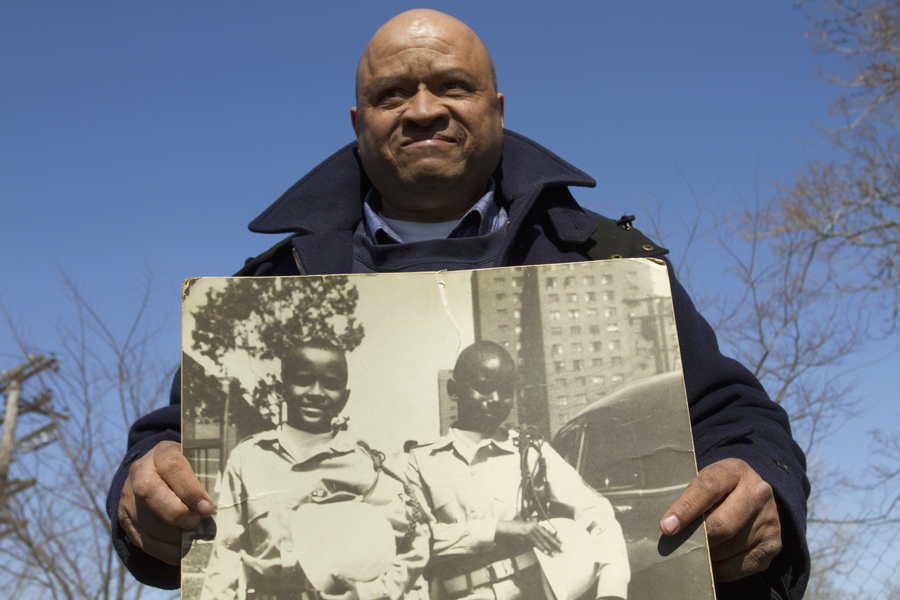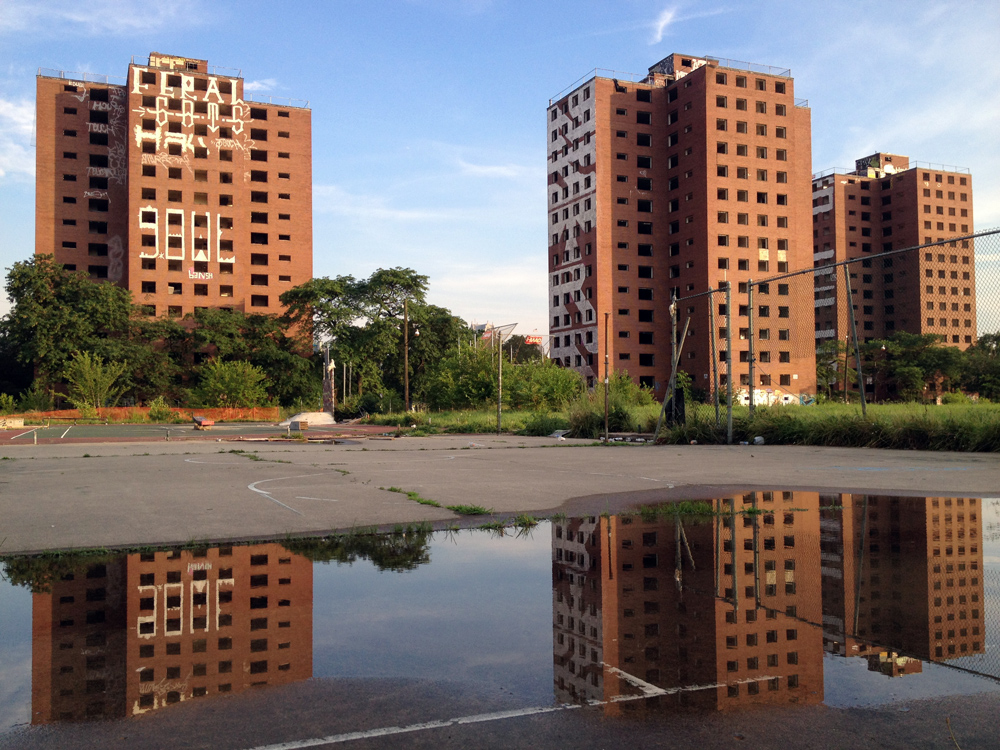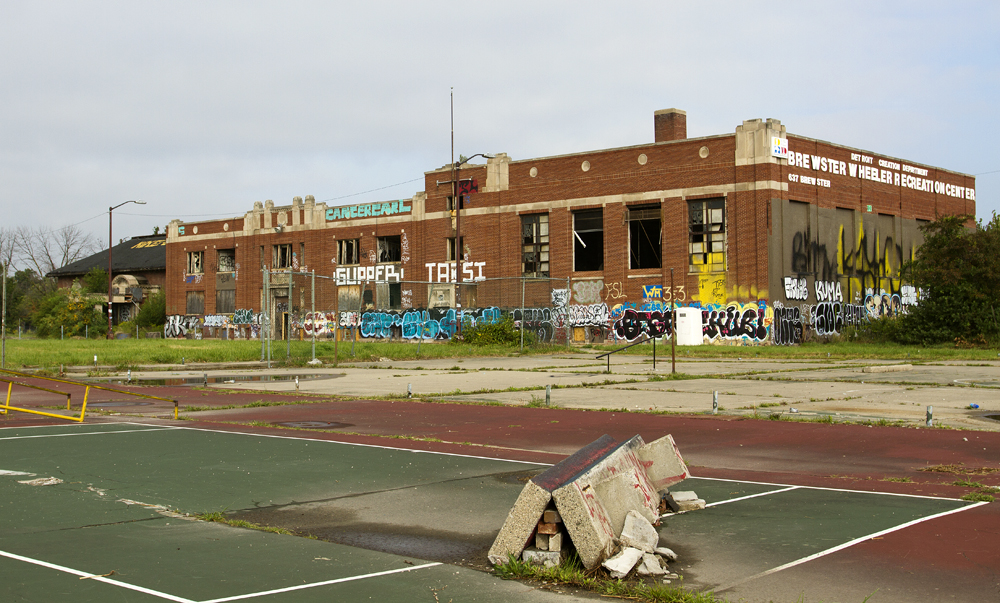
By Ken Coleman
www.onthisdaydetroit.com
On September 9, 1935 – 80 years ago today – a caravan of four vehicles motored from city hall downtown to the Hastings-Benton Street area in the heart of the city’s growing black community that by all accounts was bursting at the seams. Passengers included Mayor Frank Couzens, Common Council members, and one very special guest: First Lady Eleanor Roosevelt.
A makeshift platform awaited them. One of the city’s most respected clergy leaders, the Rev. William H. Peck, pastor of Bethel A.M.E. Church and founder of the Booker T. Washington Business Association, was among many there to greet them.
The City of Detroit and the Detroit Housing Commission, co-hosts of the event, called the program, Demolition Ceremony and Public Reception for Mrs. Franklin D. Roosevelt. A street festival featuring young neighborhood girls clad in pretty dresses performed and greeted Roosevelt, the iconic liberal woman of patrician upbringing.

Construction followed in later weeks, but first, land had to be cleared to make room for the new development. The event, in effect, served as a kickoff for the Brewster Homes – the nation’s first federally funded housing project for blacks. The first phase of the project opened in 1938. It contained 701 residential units in a series of four-story structures. The development, several streets wide, crossed Beaubien, St. Antoine, and Hastings. By the early 1950s, the Frederick Douglass Apartments, two-six story low rises and six 14-story residential towers were completed to top off the development.
Fast forward to 2015.

After the demolition of the Douglass Towers and the deteriorating condition of the neighboring Brewster-Wheeler Recreation Center, the city of Detroit called for redevelopment proposals, yielding everything from a skateboard park to residential development. Mayor Mike Duggan, in a carefully crafted April news conference with developers, neighbors and other leaders, announced an ambitious $50 million plan to rescue the historic Brewster-Wheeler Recreation Center. The proposal calls for a new restaurant, 150 new housing units, and new offices.

“Every opportunity we have, we are going to preserve buildings like the Brewster Wheeler Recreation Center that have a deep personal history in our city and do it in a way that provides real benefits to Detroit residents,” Duggan boasted in a prepared statement. “When this redevelopment is completed, we will have a facility that honors the legacy of Joe Louis, Leon Wheeler (the first black man to work for the city’s recreation department) and so many others, and re-establishes its connection to the community.”
To address genuine concerns among many longtime city residents about gentrification, Duggan and developers have made several promises:
- 200 or more permanent jobs
- 20 percent of residential units will be offered at affordable rates
- 30 percent of construction jobs will go to Detroit-based contractors
- 51 percent the construction jobs will go to city residents
- 35 percent of available jobs will be filled by city residents
- 40 percent of jobs at the restaurant would be offered to Detroiters, with a goal to increase that to 70 percent within four years
Duggan has pointed out that Slow Roll, the nonprofit that hosts all-the-rage weekly bike rides for thousands of cyclists, as well as the award-winning Detroit Chess Club and Alternatives for Girls, will have office space in the new development.
Ken Coleman is an author and historian who has written about the Brewster Homes community in “Million Dollars Worth of Nerve: Twenty-one People Who Helped to Power Black Bottom, Paradise Valley and Detroit’s Lower Side.”
Ken Coleman
Ken Coleman, the author of On this Day: African-American Life in Detroit, is a native Detroiter and former news reporter. He served on the Detroit Charter Revision Commission. He lives in Detroit with his wife, Kim Trent, and their son, Jackson Coleman.

4 Responses to "Could Historic Brewster Homes community be poised for a comeback?"